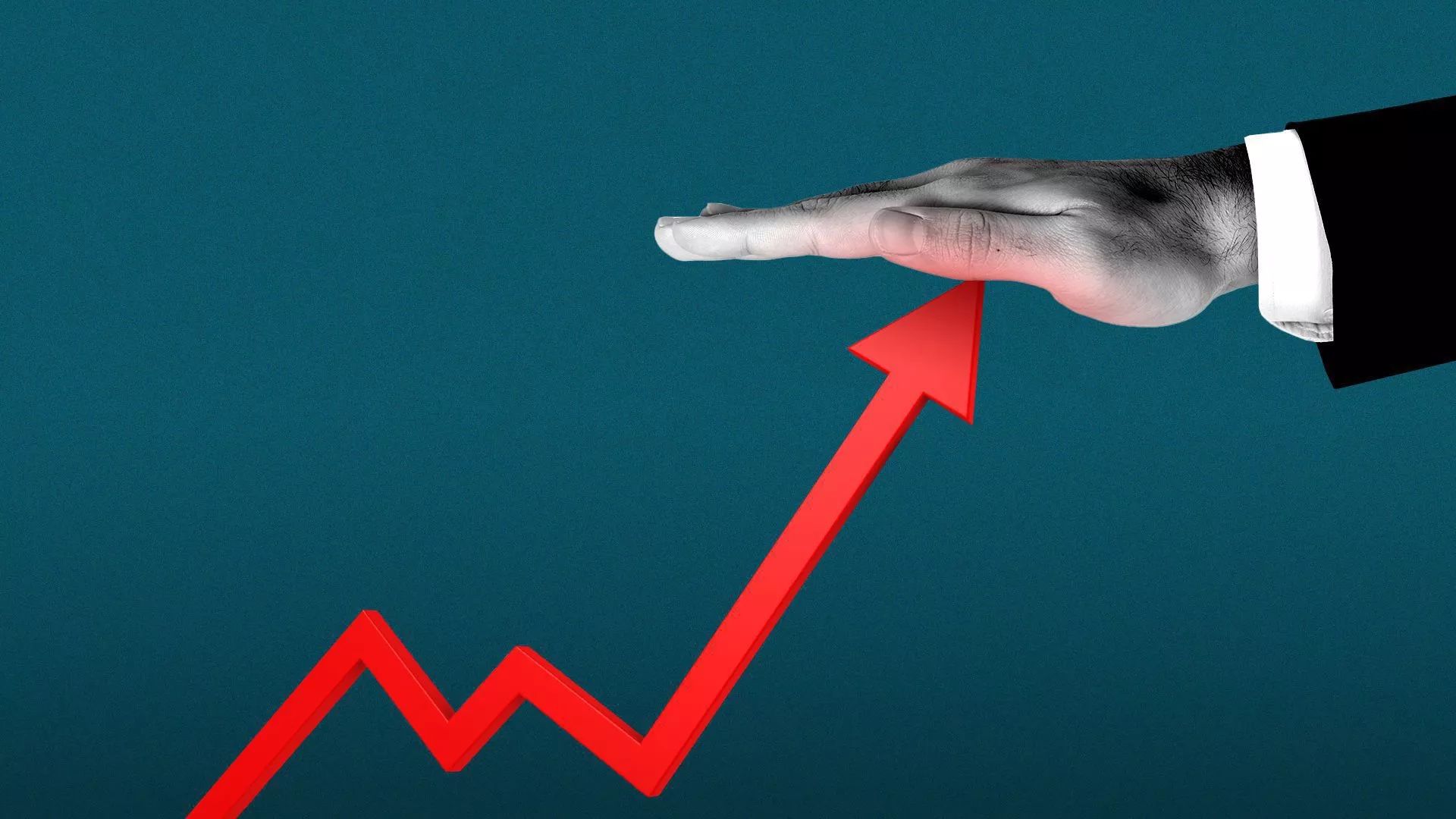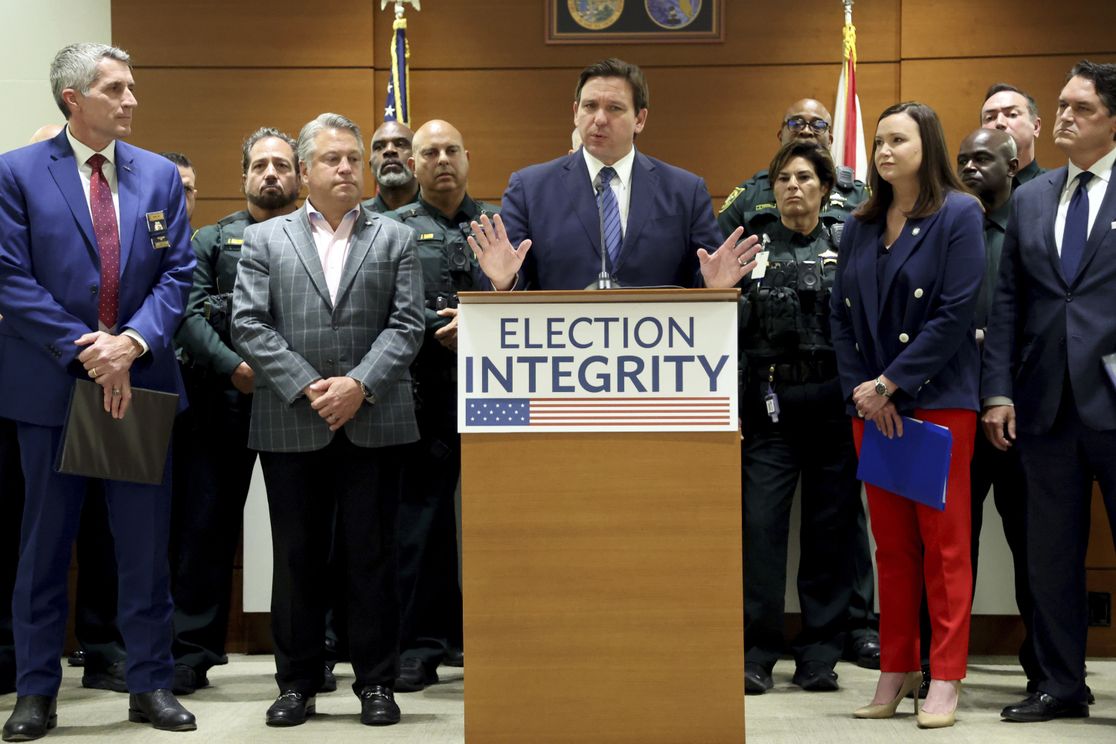| |
| |
| |
| Presented By Facebook |
| |
| Axios AM |
| By Mike Allen · Aug 19, 2022 |
| Happy Friday. Smart Brevity™ count: 1,191 words ... 4½ mins. Edited by Noah Bressner. |
| |
| |
| 1 big thing: Inflation calms down |
 |
|
| Illustration: Annelise Capossela/Axios |
| |
| Prices are falling on a host of important products, and supply chains are starting to sort themselves out. - Why it matters: These are two very clear, undeniable pieces of good economic news. High prices and product bottlenecks aren't gone. But they're getting a lot better, Matt Phillips writes for Axios Markets.
Prices are going down, down, down: - Lumber: Soaring wood prices were on the leading edge of 2021's inflationary run-up, and even early this year they were still surging. They're now down about 60% since March.
- Used cars: Prices are basically flat this year, with leading indicators suggesting a relatively sharp turndown in prices from July to August.
- Oil topped out at over $120 a barrel in March, but is now down more than 25%.
- Real estate: Going forward, the key price category to watch for inflation is housing, which accounts for a massive share of the Consumer Price Index. Even there, a pronounced downtrend in prices has started to emerge.
📦 Zoom out: A handful of trustworthy indicators also show that supply chain bottlenecks — the backlogs, delays and general unpredictability of doing business amid the economic recovery from the pandemic — are improving. - One index, produced by the economics group at consulting firm RSM, suggests that supply chains are now functioning better than they have at any time since 2019.
💡 Reality check: The N.Y. Fed's supply-chain index shows improvement — not that things are back to normal. - While inflation — the rate of price increases — is decelerating, the level of those prices remains painfully high for many.
The bottom line: Overall prices are still far higher than before the COVID-era inflation. And broadly speaking, prices aren't going back to the before times. Ever. |
    |
| |
| |
| 2. Why Trump docs are on literal paper |
 |
|
| Illustration: Shoshana Gordon/Axios |
| |
| The FBI's seizure of 11 sets of classified documents — paper, in boxes! — made us wonder why, in the cloud era of digital everything, the U.S. government still relies so heavily on physical stuff. The answer: The classified bureaucracy remains paper-heavy because of the security vulnerabilities of standard commercial devices, Axios national security reporter Zachary Basu writes. - Classified databases and email accounts that meet the federal government's cybersecurity requirements exist, of course. But they generally require sitting at a terminal and viewing the information on a screen. Paper can be a lot easier in a meeting.
- The President's Daily Brief — a comprehensive and highly classified written summary of U.S. intelligence — was printed out onto physical paper every day until 2012, when it began to be administered via iPads that former President Obama and his inner circle could swipe through in the Oval Office.
That changed with former President Trump, a technophobe with a short attention span who preferred to be briefed orally on a select few issues. - "On most days, Trump's PDB comprised three one-page items describing new developments abroad, plus brief updates of ongoing crises in the Middle East," according to an account published by the CIA's Center for the Study of Intelligence.
Former national security adviser John Bolton told CBS News: "Often the president would say [to intelligence briefers], 'Well, can I keep this?'" - "And in my experience, the intelligence briefers most often would say: 'Well, sir, we'd prefer to take that back.' But sometimes they forgot."
- Former acting chief of staff Mick Mulvaney corroborated that: "From time to time, the president would say, 'Can I keep this?'"
The bottom line: Trump, who has survived a historic level of legal scrutiny over the past six years, now faces new peril from an archaic practice — hoarding paper records. |
    |
| |
| |
| 3. 🎓 Students won't "dorm across the aisle" |
 Data: NBC News/Generation Lab. Chart: Kavya Beheraj/Axios A poll by Cyrus Beschloss' Generation Lab for NBC News (1,077 rising college sophomores, Aug. 12-17) found political polarization/tribalism extends to dorm rooms: - 46% said they would probably/definitely not room with someone who supported the opposing presidential candidate in 2020 (62% of Dems, 28% of GOP).
- 53% said they would probably/definitely not go on a date with someone who supported the other side in 2020.
- 63% said they would probably/definitely not marry someone who supported the other 2020 candidate.
🥊 73% of Democrats polled from the Class of '25 said President Biden shouldn't run again. 27% said he should. (NBC News) |
    |
| |
| |
| A message from Facebook |
| Facebook is taking action to keep its platform safe |
| |
 |
| |
| We have over 40,000 people working on safety and security across our platforms. That's more than the size of the FBI. And it's just one example of the work we're doing to create safer connections for our communities. Learn more about our work ahead. |
| |
| |
| 4. 👀 College investor makes $110M |
 |
|
| Photo: Alexandra Buxbaum/Sipa USA via Reuters |
| |
| A 20-year-old USC student — investing money raised from friends and family — made $110 million by selling a stake in meme-stock favorite Bed Bath & Beyond at exactly the right time, the Financial Times reports. - Jake Freeman, an applied mathematics and economics major, acquired about 5 million shares in July when the company's CEO was ousted following a dismal earnings report.
Freeman bought the shares at under $5.50, and sold them for more than $27 this week — just before billionaire investor Ryan Cohen cashed out his entire stake, sending the stock plummeting. |
    |
| |
| |
| 5. Ballyhooed CEO's secrets |
| Photo: Leonard Ortiz/Orange County Register via Getty Images Dan Price, a former Seattle CEO who made headlines by raising his employees' salary to a minimum of $70,000, has been accused of assaulting multiple women — and now, the allegations include rape. - Why it matters: The allegations follow years of internet fame and media fanfare — where he gradually built an esteemed reputation as a poster child for corporate social responsibility.
He abruptly resigned this week as CEO of Gravity Payments, the credit-card processing company he founded with his brother in 2004. - The N.Y. Times yesterday published a bombshell report in which a woman accused Price of raping her while she was under the influence of drugs.
👻 Price cultivated his social media presence with the help of a ghostwriter, The Times reports. |
    |
| |
| |
| 6. ☀️ Florida's Office of Election Crimes |
| Florida Gov. Ron DeSantis speaks yesterday at the Broward County Courthouse in Fort Lauderdale. Photo: Amy Beth Bennett/South Florida Sun Sentinel via AP Florida Gov. Ron DeSantis, a top potential '24 presidential candidate, announced that his Office of Election Crimes and Security, formed in April, was arresting 20 people for breaking Florida elections law. - The press release was headlined: "In Florida, if you commit an Elections Crime, you will do the time."
💨 Quick context: The charges mark the opening salvo from the Office of Election Crimes and Security, which from its conception drew widespread criticism from Democrats and voting rights groups who feared the unit would serve as a political tool for the governor, AP reports. Photo: Anthony Man/South Florida Sun Sentinel via Getty Images Above: These signs were distributed to the audience at DeSantis' presser, held in a Broward County courtroom. 🧠 Reality check: The 20 people were among more than 11 million Florida voters who cast ballots in the 2020 election. Voter fraud is rare and is generally detected. |
    |
| |
| |
| 7. 🔎 Kremlin spies botched Ukraine |
| A neighbor, Olga Rudneva, recovers an item yesterday for the elderly owner of a home destroyed by a rocket strike in Druzhkivka, eastern Ukraine. Photo: David Goldman/AP Russia's spies misread Ukraine and misled the Kremlin as war loomed, the WashPost reports in a five-part series examining the road to war: - "Sensitive materials obtained by Ukrainian and other security services offer rare insight into the activities of Russia's Federal Security Service, which bears enormous responsibility for Moscow's failed war plan and the hubris that propelled it."
Keep reading. |
    |
| |
| |
| 8. 🏎️ 1 for the road: Electric muscle car |
| Photo: Carlos Osorio/AP Automakers are replacing gas-powered muscle cars with super-fast cars that run on batteries: - This electric Dodge Charger Daytona SRT concept car, close to one to be produced in 2024, was unveiled this week in Pontiac, Mich.
Keep reading. Photo: Carlos Osorio/AP |
    |
| |
| |
| A message from Facebook |
| Over 40 million people use Facebook Privacy Checkup each month |
| |
 |
| |
| That's nearly 60 times the population of Washington, D.C. And that's just one example of the tools and technologies we're building to keep our communities safe. Facebook is taking action to keep its platform safe. Learn more about our work ahead. |
| |
| 📬 Invite your friends to sign up to get their daily essentials — Axios AM, PM and Finish Line. |
 | | Are you a fan of this email format? It's called Smart Brevity®. Over 300 orgs use it — in a tool called Axios HQ — to drive productivity with clearer workplace communications. | | |















No comments:
Post a Comment